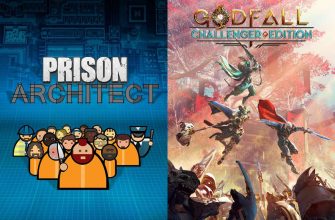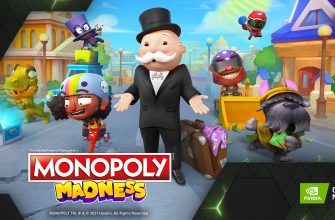Monet Goldman is a family psychologist based in Santa Clara, California. During the first weeks of the pandemic, he experienced a lot of stress and tried different ways to cope with it. “I did exercise, meditation and yoga,” he says.
However, Goldman only felt better when he returned to his usual pastime – video games. He found peace in the virtual world and re-experienced the pleasure of life. At that time, many specialists started working online, and Goldman wondered if games could help his patients too.
He began teaching other colleagues how to use online games to treat mental illness. Goldman started with Roblox, a platform with millions of games that is especially popular with children aged 5-12 in the United States.
During a Zoom consultation with two elementary school students, Goldman asked them to name their favorite Roblox games. At first the children were silent, but then one of them mentioned Brookhaven, an RPG set in a busy city. Soon, the children ceased to be shy and enjoyed spending time in the virtual world.
Online play is an alternative way of communication, similar to traditional play therapy, in which patients use toys to express their feelings and emotions. For people concerned about their appearance and speech, games are an opportunity to “express themselves in different ways” through avatars and illustrations, as well as other digital creations, Goldman said.
He notes that in a virtual environment, children who find it difficult to give personal counseling become more energized and more confident. Goldman currently advises children, adolescents and adults through a combination of play and conversation therapy.
The use of video games to treat mental health problems is not new. However, now this format is especially popular, as the pandemic has prompted the development of telemedicine.
Geek Therapy is a non-profit organization that advocates the use of video games and other popular media in therapy. According to the founder of the organization Josue Cardona, in December 2019, the Geek Therapy group on Facebook consisted of less than a thousand people, and now there are more than 5.4 thousand.
Therapists use online gaming in different ways – from meeting patients in Roblox and Minecraft, to assigning them personal gaming sessions.
Games as a therapy
“Video games can attract and retain attention, which helps patients control anxious thoughts,” says Amy Daramus, clinical psychologist and author of Understanding Bipolar Disorder.
When working with adults with chronic mental illness, including anxiety, depression and schizophrenia, Daramus uses video games as a way to learn to cope with adversity. It helps patients become more aware of their actions, she says.
Indeed, video games can be just as and even more effective in treating mental illness, especially anxiety.
-
According to a 2017 study published in Prevention Science, MindLight was just as effective in reducing anxiety in children as CBT.
-
Video games were also more helpful in reducing anxiety than prescribing an additional drug.
Some games help illuminate mental issues, such as a character from Sea of Solitude facing depression and loneliness. However, entertaining casual games can also bring positive results.
A 2009 study published in PLOS One found that after watching an anxiety-provoking movie, playing Tetris can reduce the number of unpleasant memories – this reduces the risk of PTSD.

Photo in text: Rugged Studio /
In fact, according to Daramus, play “distracts attention and memory, making it difficult to run those memories over and over in the head as the brain forms them.”
In the game worlds, some patients feel safer and freer, which means it is easier for them to work through strong emotions.
Kim Wheeler Poatevien is a licensed social worker who works with children and adolescents. She noted that in response to the racial scandals in the summer of 2023, more young black patients are turning to games like Fortnite. According to her, the children were “afraid of the police” who “thought they were bad” and wanted to “protect themselves.”
Games also help develop emotional self-regulation. Poatevienne grew up in a family of gamers and was fond of Atari as a child. Now she often arranges game sessions with clients, but does not give in to them. Poatevien believes that failing helps children develop a tolerance for disappointment, and that inevitable breakdowns and mistakes in play help build patience.
During the pandemic, online gaming has become an essential complementary tool for professionals. “Now every therapist I know has a very busy schedule,” says Daramus.
When clients can’t get to her appointment right away or want to practice coping skills between sessions, Daramus often assigns them mental-focused games such as Sea of Solitude, Night in the Woods, and Gris.
The risk of developing addiction
Some experts are concerned that people are spending more and more time in front of the screen and are becoming addicted to online games, especially children. China has already tightened restrictions on gamers under the age of 18.
The World Health Organization recognizes gaming disorder as a mental illness. However, it has not yet been possible to accurately assess its prevalence. Based on an analysis of 53 studies conducted in 2023, approximately 3% of gamers worldwide suffer from this disorder.
Larry Rosen is professor emeritus, former chair of the psychology department at Dominguez Hills State University, California, and co-author of The Absent-minded Mind. How can our ancient brains survive in the world of the latest digital technologies ”(The Distracted Mind: Ancient Brains in a High-Tech World).
Rosen argues that games can induce behavioral changes that can develop into addiction.
The more a person plays, the more he receives chemicals that form a good mood, such as dopamine, serotonin and others.
Online games do a great job of enticing gamers, as their success depends on retaining attention. The longer a person plays, the more likely they are to buy something and companies will make more money.
Therapists are aware of these potential problems, but try not to stigmatize play activities. Rather than asking the client to stop playing, Poatevien reminds them of the importance of balance. For example, she might ask, “How do you feel when you play video games until four in the morning? What are the consequences of this? “
Goldman supports this approach. He believes that the term “addictive” should not be used in relation to video games, but recognizes the risk of bad habits. If you overly rely on the game as a way of survival, then after leaving it a person “remains with the same problems that he is trying to avoid.”
Moreover, these problems are likely to “get worse because the person spends more time playing and pays less attention to things like looking for a job or studying.”
Potential for use after a pandemic
As online games evolve, doctors will need stricter ethical guidelines regarding their use, Daramus said. She argues that the main challenge is to make sure that “we are not delivering therapy in a way that is entertaining for us, but in a way that is best for the client.”
If a patient wishes to conduct an entire Animal Crossing session, the therapist needs to associate this activity with a specific treatment goal. For example, developing social skills or stress tolerance.

Photo in text: Vantage_DS /
Even after the pandemic has ended and personal consultations have resumed, medical practitioners believe that using online games as a treatment is worthwhile. If traditional therapeutic conversations do not help to cope with the problem, then virtual worlds can come to the aid of patients.
Goldman is regularly approached by parents of high school and college students who dislike therapy but need someone to talk to. Families appreciate him for his open-minded approach and passion for games.
“Therapy can be daunting and difficult,” says Goldman. “Communicating with patients in a secure, gaming world can have a profound impact, even if you are meeting on a World of Warcraft server.”
A source.
Cover photo: kudla /









